Addiction is a serious concern in Northern Ireland, and Belfast is no exception.
Sadly, one of the clearest examples of this is the rate of drug and alcohol-related deaths in Belfast and the rest of Northern Ireland.
At Rehab 4 Addiction, we are renowned for helping people to gain access to a drug and alcohol rehab centre in Belfast, assisting them in overcoming their issues with drinking and drugs once and for all.
Since 2010, we’ve built up a huge database of leading treatment providers in Belfast, which means we can suggest only the most appropriate rehabilitation clinics to suit your requirements.
We also offer connections to treatment services across County Antrim and the rest of Northern Ireland, as well as throughout the UK.
Rehab 4 Addiction in Belfast
Address: 94 University Street, Belfast, Belfast. BT7 1HETelephone: 028 9009 8864
Business hours: Open 24 Hours/7 days a week
Services in Belfast: Addiction Treatment, Alcohol Detoxification, Alcohol Rehabilitation, Drug Rehabilitation, Residential Rehab for Addiction, Alcohol Home Detox
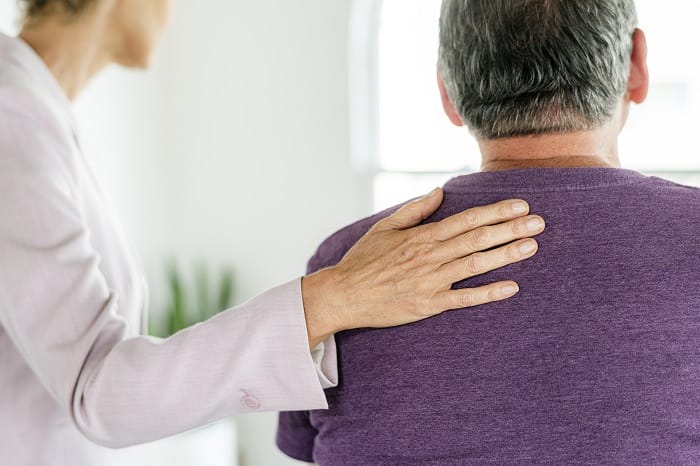
Rehab is the best treatment option for anyone who has problems with drug or alcohol abuse in Belfast.
It offers the most thorough treatment method, covering every aspect of addiction and allowing a person to heal from their trauma while also developing coping strategies for the future.
There are two basic subsets of rehab clinics: outpatient treatment and inpatient treatment.
Inpatient rehab involves the person staying at the rehabilitation clinic in Belfast for the entire duration of their treatment programme, from detoxification to discharge.
An outpatient rehab programme means that the person would stay at home in Belfast and travel to the rehab clinic during the daytime.
Outpatient treatment is cheaper than inpatient treatment, as accommodation costs are not a factor. However, an outpatient rehab programme is only suitable for certain people, which is also the case for home-based detoxifications.
Outpatient rehab or home detox would not be suitable for:
If one or more of the criteria above apply to you, it is likely that you would identify as high risk, and therefore be unsuitable for outpatient alcohol or drug detoxification.
In this care, inpatient detox at a dedicated rehab or detox clinic would be a better option than outpatient treatment, due to the safety, security, and structure provided by a clinical recovery environment.
This is one of the reasons that your free telephone consultation with us is a good resource to have.
Ultimately, inpatient & outpatient rehab are both useful for alcohol and drug addiction treatment in their own ways, though which is better for you is something we can help you discover.
Make sure your time at a Belfast alcohol and drug rehab is as good as it can possibly be by calling us today on 0800 140 4690

Here at Rehab 4 Addiction, we aim to make it as easy and painless as possible for you to get into a drug and alcohol rehabilitation centre in Belfast that is right for you.
Based on the information which you provide us during your consultation, we can suggest an appropriate rehabilitation clinic and have you arrive there within just a couple of days.
Once you get to the rehabilitation clinic or sober living house, you will be assessed by the welcome team.
The purpose of this psychiatric assessment is to make sure that you are not a threat to yourself or others, and crucially, to plan out the right personalised treatment plan in Belfast for your needs.
This will be done by a psychiatrist or other medical professional. This will help you on your path to sobriety.
You may also need to have a medically-assisted detox – especially for those going through alcohol detox or heroin withdrawal, or for those who have a physical drug or alcohol dependency, as the symptoms can be very dangerous.
Whilst at drug and alcohol detox clinics or undergoing home detox, you may be prescribed Librium or Chlordiazepoxide for alcohol withdrawal symptoms by rehab clinic doctors.
Long-term consequences of substance abuse can include hepatitis, wernicke encephalopathy, alcohol withdrawal syndrome and more.
Towards the end of your treatment programme, you will develop an aftercare and relapse prevention plan which will help you after you leave a Belfast addiction and drug rehab clinic.
There are a number of possible different ways in which an addiction patient is assessed on arrival, some of which we have listed below.
Start the admission process for drug and alcohol rehab in Belfast today by calling us on 0800 140 4690

ASAM stands for the American Society of Addiction Medicine, which has been running since 1954. They have their own set of criteria for judging the severity of addiction, which is often used in preliminary assessments at drug & alcohol rehab centres.
The purpose of the ASAM criteria is to develop a sense of the individual’s personal characteristics and proclivities, as well as how likely they are to stick to their alcohol and drug addiction treatment plan.
There are six different ASAM criteria overall, which are as follows:
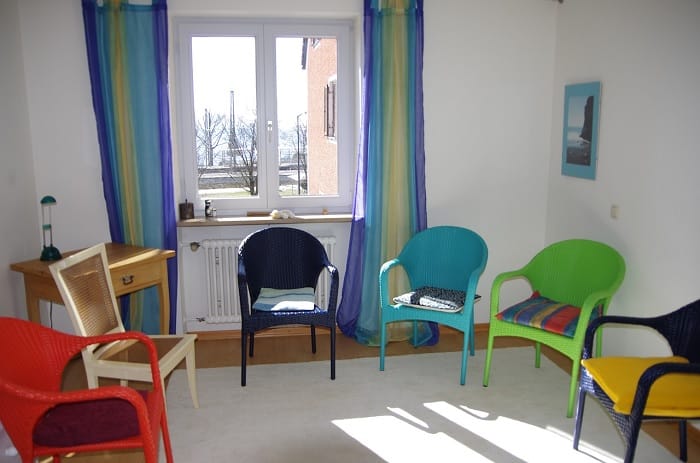
The Diagnostic and Statistical Manual of mental disorders, DSM for short, is the American Psychiatric Association’s comprehensive guide to the diagnosis of mental health issues.
DSM-5 simply refers to the fifth edition of the DSM, which has been in use since 2013.
The DSM-5 has its own standard for judging whether a person has developed a drug or alcohol addiction, and if so, how relatively severe that addiction is.
This treatment method consists of 10 different addiction symptoms within four different categories, as listed below.
Under this DSM-5 model, the person is asked to count how many of these addiction symptoms apply to them, and make a judgement accordingly. For reference, two or three of these addiction symptoms would indicate a mild substance abuse disorder.
Four or five would demonstrate a moderate substance abuse disorder, while six or seven would demonstrate a severe substance abuse disorder – in other words, a drug or alcohol addiction.
Have these categories made you wonder about your own need for treatment at a drug and alcohol rehab centre in Belfast? Call our team today on 0800 140 4690

The World Health Organisation (WHO) have its own test for gauging substance abuse and drug or alcohol addiction problems, which is called the Alcohol Use Disorders Identification Test.
The person is asked to go through a pre-existing list of statements, mark those which apply to them, and count up their score using the scoring system provided.
In the AUDIT model, a score of 0 to 7 indicates that the person is low risk. 8 to 15 would indicate an increased risk, 16 to 19 a higher risk, and 20 or more indicates a possible alcohol dependencey.
The AUDIT is available to complete through the UK government’s website – just search ‘audit alcohol test’ in your preferred search engine if you would like to complete the test for yourself.
In addition to this, you can also use the CAGE questionnaire as a way to assess whether you have a drug or alcohol addiction. This works on a point-based system.
If you think you might need the help of an alcohol rehab clinic Belfast by calling us on 0800 140 4690
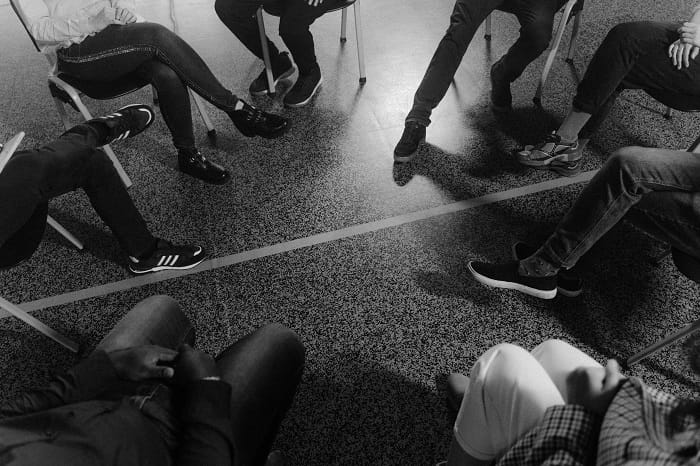
Sometimes it can take an intervention to get through to someone who is in active drug or alcohol addiction, in order for them to accept that they need help.
The kind of intervention that is most often portrayed in media is the traditional approach of the addicted person’s loved ones sitting down in a room with a person and communicating their thoughts to the person one by one.
This is certainly a viable option and is best facilitated with the help of a trained intervention counsellor. We can provide advice on how to go about arranging this.
However, there is another intervention treatment method known as CRAFT, which takes a different approach to intervention.
CRAFT stands for Community Reinforcement And Family Training. It takes the approach of positive reinforcement with the hope of modifying behaviour.
For example, this could involve providing a tangible reward to a person who abstains from drug or alcohol use for a period of time.
We can provide free advice on both of these methods and how best to arrange an intervention for a loved one in Belfast, helping to encourage a successful rehab process.
To make sure your intervention is successful at convncing a loved one to attend alcohol and drug rehab in Belfast, call our expert team on 0800 140 4690
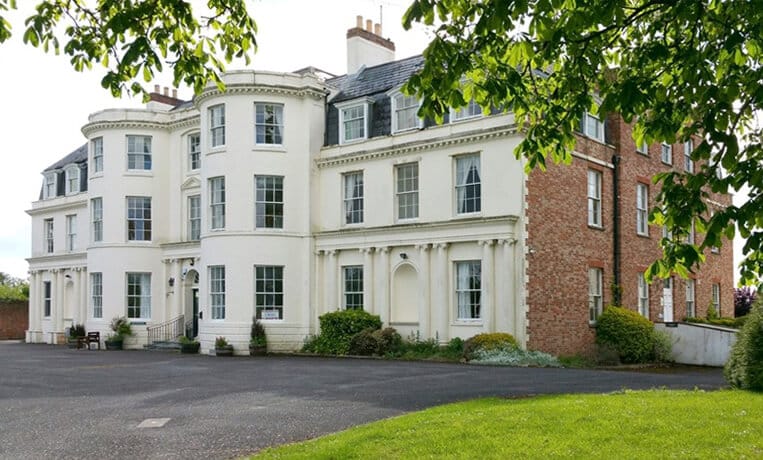
This is one of our most commonly asked questions, which is completely understandable.
The total cost of attending a private drug & alcohol rehabilitation centre in Belfast will vary depending on a number of factors.
The kind of treatment program that you opt for, the location of the alcohol and drug rehab centre, the specifics of the rehab process and the rehab clinics own pricing will all determine your rehab fees.
For example, if you were to attend Belfast alcohol and drug rehab as an inpatient for a full 28-day course of treatment, you could expect to pay between £8,000 and £12,000 for a single room to yourself, or around £6,000 for a multiple-occupancy room shared with others.
If you were to attend rehab for a 10-day alcohol or drug detox, this would cost between £2,000 and £6,000, depending on whether you opted to stay in a single occupancy room or a multiple occupancy dorm.
A home detox with medication would further lower rehab fees, down to around £1,500.
Whatever your budget, we can provide advice on how to make the rehab process more affordable. Including making sense of any finance options that you might have available to you.
For a more specific estimation of how much your time at drug and alcohol rehab Belfast will cost, give our team a call on 0800 140 4690

At Rehab 4 Addiction, we only provide referrals to private rehabilitation clinics. We provide this service across the whole of the UK, including here in Belfast.
However, we do understand that not everyone can afford private treatment in Belfast, and we want to assure you that if this is the case for you, it is still possible to get help with any drug or alcohol addiction problems you have.
There are a number of clinics that are accessible through public health services such as the NHS or other nonprofit organisations.
If you secure a rehab placement this way, it is likely that you will not have to pay for a treatment program, or that your payment will be minimal.
However, it should be noted that there are negatives and positives for each kind of rehab service in Belfast.
The main advantage of a public-funded rehabilitation service in Belfast, as stated above, is that you will not have to pay for your treatment program or rehab process.
However, the main drawback is that you will likely have to wait on a list for treatment, which could add up to months before starting your rehab programme. You will also not have the same amount of choice over your treatment methods as you would if you were to go private.
The main disadvantage of getting private treatment is that it will be a considerable financial investment. However, there are a number of advantages to engaging in the recovery process this way.
First of all, you can begin treatment straight away, which can be a big help for anyone whose addiction is severe.
Through a private rehab centre, you will also have more say over where you get your treatment program, and you will have access to an industry-leading standard of care and accommodation during the residential rehab process.
Whether you get alcohol and drug addiction treatment through us or choose to go through the NHS, we are happy to provide advice on how to find the best rehab programme available to you.
For advice and guidance in choosing between private or NHS alcohol and drug rehab Belfast, give our team a call on 0800 140 4690.
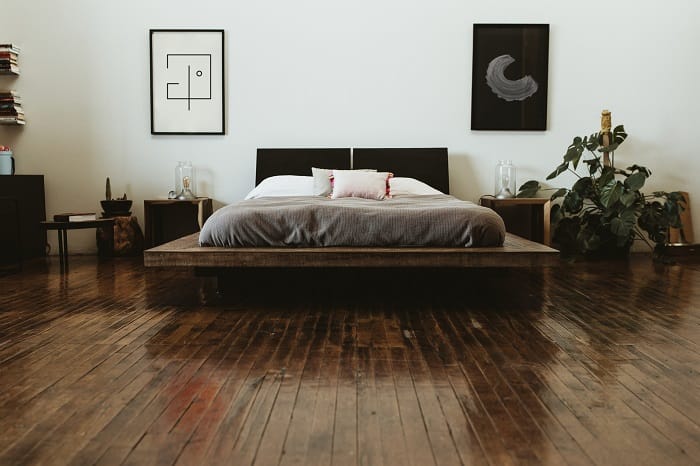
Drug & alcohol rehab in Belfast will last for 28 days for most people.
This includes alcohol or drug detoxifications and all other treatment method elements. For those who do not require an alcohol or drug detox, there are 10-day treatment options available.
Some people elect to stay at rehabilitation centres for up to 9 days, although this is usually only for those with the most severe drug or alcohol addiction problems.
For a personalised estimation of how long your time at a Belfast alcohol and drug rehab will last, call us today on 0800 140 4690
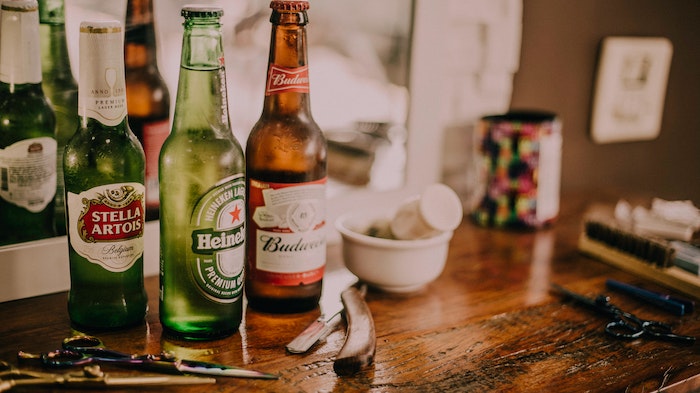
Alcoholism and alcohol abuse are huge social problems up and down the country.
It’s not just the individual alcoholic who is affected, either – everyone around them will feel the weight of their destructive alcohol addiction.
This can lead to the person losing friends and becoming isolated, on top of the litany of long-term and short-term health problems associated with alcohol abuse.
Alcohol addiction is an unfortunately common disease, with a study by Robin Room, Thomas Babor and Jürgen Rehm revealing that ‘4% of the global burden of disease is attributable to alcohol’, accounting for almost as much death and disability as tobacco and high blood pressure (hypertension) globally.
It is reported that about 14% of alcoholics develop liver cirrhosis if they continue their drinking habits for over a period of 8 years.
It is best to stop drinking today so you can have the best chance at a full recovery.
Heavy alcoholics consuming at least 80g of alcohol per day for more than 10 years will develop liver disease at a rate of nearly 100%.
Being an alcoholic is thought to also drastically lower your age of death. For those who have been hospitalised, the average age of death for an alcoholic is 47–53 years in men and 50–58 years in women.
The good news is that help is out there if you are willing to put the work in and commit to the recovery process and every stage of your recovery plan.
When it comes to getting sober, there is a lot of work to be done, but thankfully all of it can be done within the same rehab facility in Belfast.
At drug & alcohol rehab in Belfast, you will be able to go through detox and withdrawal safely, with the assistance and guidance of specialist medical professionals.
The team will be able to administer appropriate medication to help you through the worst of it and to reduce the chance of you suffering seizures or other health complications.
This will usually be with a drug called Librium.
Another medication used to stop drinking is Acamprosate (Campral®). This helps to restore the balance of chemicals in the brain that have been damaged by alcohol. Antidepressants like nefazodone, desipramine, or imipramine could also be prescribed by rehab clinic doctors, as alcohol can cause anxiety and depression.
The opioid antagonist Naltrexone can also be helpful in cutting alcohol out of your life as it decreases the alcohol you consume. Naltrexone helps to uncouple the relationship between alcohol and pleasure.
Once you have gone through the detoxification stage, which should take between 7 and 10 days, you can then begin your intensive therapy treatment plan.
Through a combination of different therapeutic approaches, you will get to the bottom of why you were compelled to drink in the first place and begin to work through those issues in a healthy and constructive way.
Alcohol recovery is a lifelong mission, so as you reach the end of your rehab stay, it is important that you focus on what lies ahead once you leave.
This is where your relapse prevention plan comes in – we go into much more detail about this in its own section below.
Get the help you need from alcohol rehab centres in Belfast by calling our team today on 0800 140 4690

Withdrawing from long-term alcohol abuse is always challenging, and can be extremely dangerous if it is not managed properly.
Going cold turkey always presents the possibility of seizures, and the longer you have been in active alcohol addiction, the more likely this is to happen.
This is why it is always preferential to go through alcohol detox at rehab, where you can have proper medical supervision and medication.
This usually comes in the form of Librium, which is a sedative often used to assist a person’s alcohol withdrawal in a safe manner.
The only time it is appropriate to go through detoxification alone is if you are able to arrange a home detox with medication and proper guidance.
However, this is only appropriate for people with a less severe pattern of alcohol abuse. We go into more detail about this in the section below.
Make sure your withdrawal from alcohol happens in a safe and effective way – give our team a call on 0800 140 4690.

For certain people, it may be possible to arrange for a home alcohol detox.
This means that we would send out appropriate medication to you in the post, along with instructions, and you can complete your alcohol detox by yourself at home.
Some people like the idea of this, as it gives them the option of staying in the comfortable recovery environment of home, and also is much cheaper than going to an alcohol and drug rehab centre in Belfast.
However, there are downsides to this approach, and it will only be available to people with a less severe alcohol addiction.
To be specific, you would need to be consuming fewer than 30 units of alcohol per day, as well as having a stable home recovery environment with minimal distractions.
For example, if you have an abusive or toxic partner living with you, it would not be recommended that you go through a home detox or seek your treatment method as an outpatient.
We can discuss this as part of your initial telephone consultation. There are a number of different factors that go into deciding the right path for alcohol addiction treatment, and it is best to discuss this in detail.
To find out if a home detox is right for you, or if you would be better suited to a stay at a drug and alcohol rehab in Belfast, call us today on 0800 140 4690

Cocaine use and possession are still illegal, but that hasn’t stopped the drug from becoming one of the most consumed drugs in the UK.
Cocaine is a big part of the club scene in every major city, and Belfast is no exception. If you have developed a cocaine problem, the best thing to do is seek treatment at drug & alcohol rehabilitation centres in Belfast.
A cocaine rehab programme does not just focus on getting you clean and sober – the aim is to address the underlying issues that led to you developing a cocaine problem, to begin with.
This could involve a combination of different traumas, behavioural problems and other factors. During a drug rehab programme, all of these issues can be dealt with through a combination of addiction treatments.
Getting help with cocaine at a rehab does not require you to go through a drug detox.
There is no such thing as a ‘cocaine detox’ per se, and withdrawing from cocaine does not require any kind of special medication, as it does with alcohol or heroin.
Nevertheless, it is best to go through withdrawal at a rehabilitation clinic, where your psychological wellbeing can be monitored and managed as you withdraw.
After you have been through your treatment program, one of your last tasks will be putting together a relapse prevention plan to help you to manage any cravings you have in future.
In total, cocaine rehab in Belfast should take no more than 28 days to complete, and from there on out you can look forward to a clean and healthy future without the misery of cocaine abuse.
Beat your cocaine addiction with the help of a drug and alcohol rehab centre in Belfast by calling us on 0800 140 4690

Heroin abuse and addiction is an epidemic in the UK, and the results can be seen on the streets of nearly every town and city in the country.
As well as being an incredibly potent and dangerous drug, the destructive lifestyle associated with heroin abuse has its own raft of problems, resulting in an increase in crime, deprivation, and other social problems.
Withdrawal symptoms from heroin can be absolutely horrible, and if a person wants to get clean, they need to go through detox and have their withdrawal managed properly.
The best way to do this is at rehab, where you can go through detox in as safe a manner as possible, with support and supervision from medical professionals.
Heroin detox at rehab in Belfast will usually involve the use of a medication called Subutex, before eventually moving on to methadone as a substitute for heroin.
This allows the body to get used to life without heroin, and eventually, the person can come off methadone as well. This usually takes about a year.
Aside from detox, a rehab programme will also provide the opportunity to get help with any underlying issues that have been bubbling under the surface during active addiction.
Being able to properly deal with these issues in a safe environment will mean that the chances of you relapsing in future are much lesser.
We know how incredibly challenging life in active addiction can be, but with the right treatment program and support, there is always a way out through drug & alcohol rehab centres in Belfast.
Beat your heroin addiction with the help of a drug and alcohol rehab in Belfast by calling us on 0800 140 4690

Cannabis is used all over the country, and among many social groups, its use is completely destigmatised.
For one reason or another, there are a number of helpful myths about cannabis use, with some people saying that it is not harmful, or even good for you.
This is simply not the case, and just like any other substance, cannabis has the potential to cause addiction and cause problems.
A study by Wayne Hall and Louisa Degenhardt has proven the adverse side effects of regular use of cannabis during adolescence and into adulthood. These can include:
While it is true that no one has ever overdosed from cannabis, and it is basically impossible to do so, that does not mean that cannabis is harmless.
Long-term cannabis abuse can contribute to a host of different mental illnesses, including depression, anxiety disorders, and even schizophrenia.
While medications like Selective Serotonin Reuptake Inhibitors (SSRIs), especially Sertraline, can help ease anxiety symptoms, you should prevent anxiety and other effects that cannabis might be causing you by quitting altogether.
The effects of cannabis can also cause some people to become very socially withdrawn, apathetic, and lethargic. This can easily lead to social isolation, which is always negative in terms of dealing with any mental health challenges.
Cannabis use disorder can be treated at rehab, just as with any other drug.
Detox is not necessary, but a cannabis rehab programme will give you a chance to address any mental health issues you have in a healthy, constructive way, with the help of addiction professionals.
This treatment will be just as effective as the treatment you would receive at a dedicated mental health treatment hospital.
After a number of weeks at the drug rehab clinic, you will be able to leave with a firm plan for a sober new future without cannabis abuse.
Beat your cannabis addiction with the help of a drug and alcohol rehabilitation centre in Belfast by calling us on 0800 140 4690
Other types of addictions that can be treated at alcohol and drug rehab include:

It is likely that your therapy treatment plan will use a number of different techniques and therapies to help you address your drug or alcohol problem.
After all, addiction is very complex, and everyone who goes through it has a different rehab experience.
Below are some of the different types of therapy treatment that you can expect to comprise part of your therapy plan at a drug & alcohol rehab clinic Belfast:
Cognitive behavioural therapy (CBT) is a well-established therapy technique that helps people to lessen the symptoms of various mental health conditions by challenging their thoughts, as well as their emotional responses to them.
As well as drug and alcohol addiction, cognitive behavioural therapy is used to treat a lot of other different conditions, including depression, anxiety, and compulsive behaviours such as gambling.
Dialectal behavioural therapy (DBT) is based around the same principles as cognitive behavioural therapy but is particularly useful in terms of treating personality disorders.
These conditions, such as borderline personality disorder, can very often be a comorbidity of drug or alcohol addiction, and DBT is often used within the context of an addiction treatment program.
Brief intervention is a term that describes a range of different short-term interventions in a person’s addiction.
This could be something like pointing them to a rehabilitation clinic, providing them with a phone number for a helpline, or helping them to draw out a short-term plan for their near future.
It is used in the context of drug and alcohol addiction, as well as other problematic behaviours such as gambling or overeating.
When a person has battled addiction for a long time, it may cause them to become apathetic, jaded, and without motivation for the future.
This can even happen when the person is undergoing their recovery programme – there can be a sense of feeling ‘burned out’ by everything they have been through.
Motivational interviewing (MI) is a counselling technique that aims to remedy this by encouraging the person to find their own forms of motivation for the future and to help them harness that motivation and put a plan of action into place.
In the context of drug and alcohol rehab centres, holistic therapy treatment is a term used to describe a range of different activities that may be helpful in terms of a person’s well-being.
This might include things like art treatments, music therapy, equine therapy, yoga, mindfulness meditation, acupuncture, drama therapy, and gardening.
Activities like these can give the person a sense of wellbeing and mindfulness, as well as something positive to focus on as they are going through the process of rehab, which can sometimes be challenging.
Holistic therapies may also lead to the person developing a new passion or skill which may help them in their ongoing recovery plan once they leave the rehabilitation clinic.
Group therapy is usually a big part of the drug and alcohol rehab experience. This is because it provides a great sense of community, as well as the therapeutic value of having a group of sympathetic people to share with.
You may also find that you gain a lot of knowledge and insight from listening to the stories and perspectives of other people in the group.
Group therapy treatment is a valuable part of any rehab programme, but there are some things that are best discussed with a therapist on an individual basis. This is what one-to-one therapy treatment is for.
Your rehab schedule will be comprised of several different types of individual therapy. This might include psychotherapy, counselling, CBT, DBT, hypnotherapy, and others.
As well as causing a lot of damage to themselves, a person in active drug or alcohol addiction can cause a great deal of damage to everyone around them.
It is often families that bear the brunt of this, with those closest to the person experiencing a great deal of damage along with them.
It may be possible at your rehab clinic to engage in some family therapy sessions, with your loved ones joining the session in person or over a video call.
Sessions like this can be very restorative in terms of a person’s relationships.
We understand and acknowledge that a lot of people have very difficult relationships with their families and that they may not want to speak to them at all.
This is perfectly valid, and you should know that these sessions would only happen if you consented to it, and it is judged to be appropriate in terms of your overall therapy treatment plan.
Living in active addiction is hard for anyone, and the stress of addiction can often cause people to develop unhealthy relationships as a coping mechanism.
This might mean developing a co-dependent relationship with someone else in addiction, whether romantic or otherwise.
At a rehabilitation centre, you will be able to discuss and explore your relationships with a mental health professional.
Having their perspective, as well as having the benefit of distance from the person in question, can give you a much better idea as to which of your relationships are healthy, and which are potentially destructive.
For those who adhere to the 12-step programmes as set out by Alcoholics Anonymous or Narcotics Anonymous, this can be incorporated into your treatment plan at your chosen drug & alcohol rehab centre.
We can offer advice as to which clinics accommodate the 12-step programme as a part of their day-to-day operations.
Other types of therapy treatment available at rehab include:
At a rehab centre, you can also benefit from other psychiatric treatment methods such as contingency management, coping mechanisms, and person-centered care.

Generally speaking, drug and alcohol addiction is not something that exists in a vacuum – there are almost always other mental health issues at play.
A lot of the time, these mental health problems can end up making the addiction much less manageable.
This is why it is so valuable to have access to a team of top mental health professionals at drug and alcohol rehab centres.
They will be able to diagnose any such issues and help you to address them in a healthy way, using the same techniques that would be used at a traditional mental health treatment hospital.
In the context of a drug and alcohol rehab programme, this is often referred to as ‘dual diagnosis’.
Co-occurring mental health disorders that can be treated at rehab include bipolar disorder, eating disorder treatment, obsessive-compulsive disorder, post-traumatic stress disorder (PTSD), process disorder treatment and more.
You can also find general mental health support at Rethink Mental Illness, Papyrus, Young Minds, Samaritans and Mind UK.
To learn more about how a drug and alcohol rehabilitation centre in Belfast will support your mental health, call us on 0800 140 4690

One of the last parts of an alcohol and drug addiction treatment program at a drug and alcohol rehabilitation centre will be putting a plan together for when you leave the rehabilitation clinic.
This will help you to manage your cravings and deal with stressful or difficult experiences and circumstances, without falling back into a pattern of substance abuse.
This might involve reassessing who you associate with socially, as well as keeping your distance from certain environments that could be triggering, such as bars or clubs.
Your relapse prevention plan will make use of everything you have learned while at drug and alcohol rehab, and take your own personal triggers and sensitivities into account.
Find out for yourself how a drug and alcohol rehab programme in Belfast can help you avoid relapse permanently by calling us on 0800 140 4690

If you cannot afford to go to a rehabilitation centre right now, or you would just prefer to go a different way, there are still a number of ways to get help with drug or alcohol addiction.
Below, we have listed a number of options that are either free or much cheaper than a course of private rehab.
Alcoholics Anonymous (AA) is an organisation that has been helping people face alcohol addiction for nearly a century now. It utilises a heavily spiritual approach towards dealing with addiction, with attendees encouraged to give themselves over to a ‘higher power’ as part of their recovery plan.
In the AA model, recovery is centred around the 12-step programme, which is also the case with sister organisations such as Narcotics Anonymous (NA) and Cocaine Anonymous (CA). Not everyone will get along with this approach, but millions of people around the world find it very helpful.
SMART Recovery is an organisation that has been providing free addiction treatments and other resources for fighting addiction since they formed in 1994.
They offer a more evidence-based treatments with a secular approach – for example, they do not require attendees to invoke a ‘higher power’. Instead, they focus on clinically-based techniques such as cognitive behavioural therapy.
In simple terms, the SMART Recovery philosophy is that they treat addiction as a behavioural problem to be managed, rather than a spiritual disease of some kind.
Home detox is a much more affordable way of getting sober than going to rehabilitation centres for a full 28-day course.
However, it does not provide access to any other kind of therapy treatment programme, which will mean that your chances of relapse are generally higher than they would be had you gone to rehab.
Home alcohol detox is available to people who have a less severe alcohol intake – specifically, fewer than 30 units per day on average. There are other restrictions in place as well.
We can discuss during your telephone consultation whether home detox might be a viable option for you.
Although it has a similar name, Al-Anon is a separate organisation from Alcoholics Anonymous. Its purpose is to provide support for the relatives and loved ones of people in addiction.
It can be helpful to discuss and share these problems with others who understand, without having to worry about offending the person in addiction or jeopardising their recovery plan.

If you go to your local GP and explain that you are suffering from drug or alcohol addiction problems, they will be able to provide you with a number of resources for dealing with those issues.
This might be local meetings, classes, or other free-to-attend events centred around addiction.
It may also be possible for you to be under the care of your local drug and alcohol outreach team, usually operated by the NHS. This can be a very helpful resource to have access to.
Free and NHS-run rehab treatment services available in Belfast include:
Address: Callan House, Westcourt Centre, 8-30 Barrack St, Belfast, BT12 4AH
Telephone: 0800 254 5123
Website: http://www.ascert.biz/
Address: 40 Elmwood Ave, Belfast, BT9 6AZ
Telephone: 028 9066 4434
Website: http://www.inspirewellbeing.org/
Address: 2-4 Henry Pl, Belfast, BT15 2BB
Telephone: 028 9032 8308
Website: http://www.carlislehouse.org/
Book an appointment with your GP today and ask them about what is available in your area.
Whatever help you need, whether from a drug and alcohol rehabilitation centre in Belfast or alternative treatment services, we are here for you. Call us today on 0800 140 4690

The government’s refusal to invest in services designed to tackle substance misuse means that seeking help on the NHS may result in a lengthy wait for treatment, in which time your addiction could become much worse.
If you don’t want to linger on waiting lists for many months, it’s time to get in touch.
We work with private rehab clinics in Northern Ireland, many of which offer immediate access to a thorough treatment programme.
What’s more, because these clinics have top-of-the-range facilities and luxurious surroundings, you can expect to enjoy a comfortable stay while you engage fully in your addiction recovery programme.
You’ll also benefit from round-the-clock care and support from a team of highly experienced medical professionals.

At Rehab 4 Addiction, we can help you gain immediate access to drug and alcohol rehab in Belfast.
Call us on 0800 140 4690 and one of our trained counsellors will be on hand to discuss your addiction, the rehab locations in your area and what services may be of best use to you.
Alternatively, message us through the website, and we’ll get back to you as soon as we can. A brighter future is just around the corner, so why not take the first step to recovery today?
Every rehab in Northern Ireland that we work with is vetted by the Regulation and Quality Improvement Authority.
Rehab 4 Addiction offers drug and alcohol rehab options across Nothern Ireland, including in Lisburn, Derry, Newry, Newtownabbey, Bangor, Armagh, Ballymena, Newtownards, Carrickfergus, Coleraine, Lurgan, Portadown, Antrim, Omagh, Larne and many more.
This article was written by Boris Mackey. You can connect with Boris online at LinkedIn or X.com.
 Addiction is often largely misunderstood, with many incorrectly labelling it as a lack of willpower, a moral failing or something that happens after a series of bad choices. When, actually, addiction is much more complex. It can be shaped by a number of things, such as trauma, mental health, the environment you grew up in […] .... Read More
Addiction is often largely misunderstood, with many incorrectly labelling it as a lack of willpower, a moral failing or something that happens after a series of bad choices. When, actually, addiction is much more complex. It can be shaped by a number of things, such as trauma, mental health, the environment you grew up in […] .... Read More